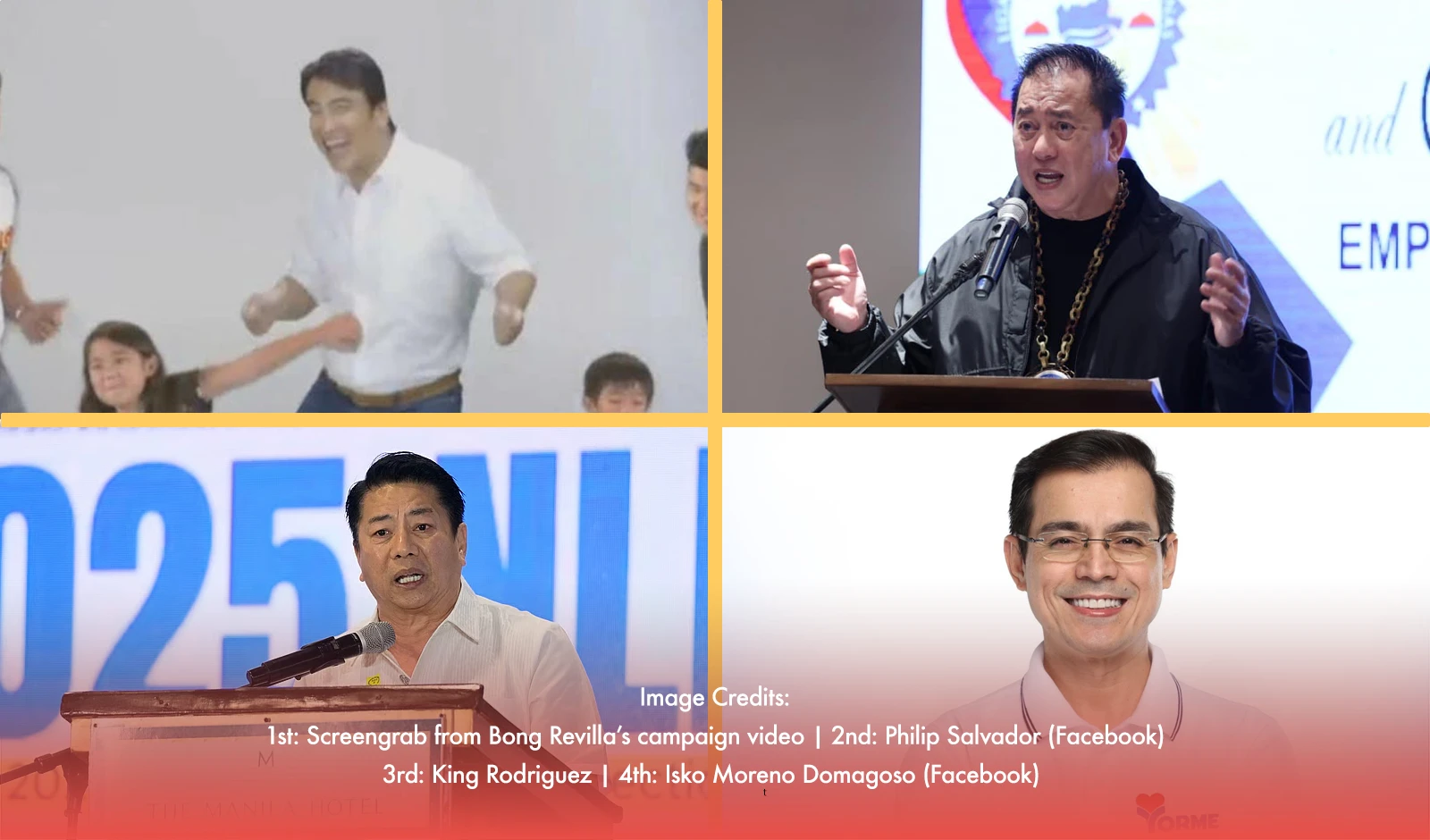For years, the Philippines has seen entertainers enter the government. Joseph Estrada, for example, was an actor who became the president. Vilma Santos served successfully as governor and congresswoman. Isko Moreno started as a matinee idol and, for the second time, became the mayor of Manila.
It's just simple. Name recall, massive fan bases, and media exposure give celebrities a head start in any campaign. Unlike the "no-names" who are trying to scrape however many supporters as they can, these celebrities are widely known and are "household names" already. One could say that they had already been campaigning by the time they appeared on air.
This fame and familiarity often give way to influence and public trust. For some, running for office is a continuation of a family legacy (like Luis Manzano and Michael Pacquiao). Others say they want to use their platforms for public service.
But 2025 showed that intentions and influence aren't always enough.
The Winners and The Losers
Several stars won key positions:
1. Kiko Pangilinan returned to the Senate, thanks to strong support from young voters.
2. Isko Moreno reclaimed the mayoralty of Manila.
3. Arjo Atayde, Richard Gomez, and Lucy Torres-Gomez kept their seats in Congress.
But many big names didn’t make the cut:
1. Willie Revillame, Philip Salvador, and Mocha Uson lost in their races.
2. Other actors like Aljur Abrenica and Angelika Dela Cruz also faced defeat.
Analysts are calling this a "bloodbath" for celebrities, and for good reason. But is this a case of voters being more informed, or are these celebrities doing something wrong?
Enter the Youth Vote
One of the biggest takeaways from this election was the rise of Millennial and Gen Z voters. Together, they made up over half of the voting population, and they came prepared.
Their influence was most evident in the surprise comeback of Kiko Pangilinan, who was coming off a failed vice presidential campaign last elections. He was widely considered out of the running early in the campaign, but with strong support from youth sectors and a solid social media strategy that banked on previous support, he surged ahead.
One could also argue that this voting demographic doesn't know half of the celebrities running. But that doesn't matter much since many Gen Z voters view performative politics and popularity-driven campaigns with skepticism. They want real action and a clear forward-facing plan, not janky catchphrases and empty promises.
Substance Over Stardom
The 2025 elections marked a turning point: being famous isn’t enough.
In the past, popularity often translated into votes. Today, voters—especially the young—want more substance. They want candidates who are competent, prepared, and aligned with their values.
That doesn’t mean celebrity candidates have no place. Those with clear platforms, genuine intent, and experience (like Kiko, Vilma, and Arjo) still won. But the era of riding on popularity alone may be fading fast.
Voters, especially the youth, now demand leaders with real plans and clear values. As more Filipinos think critically about who they vote for, fame, as it always was, would get your attention - but only substance wins the seat.
Celebrity politicians in the 2025 Philippine elections learned a hard truth: the public wants more than fame. And that’s a major step forward for democracy.








